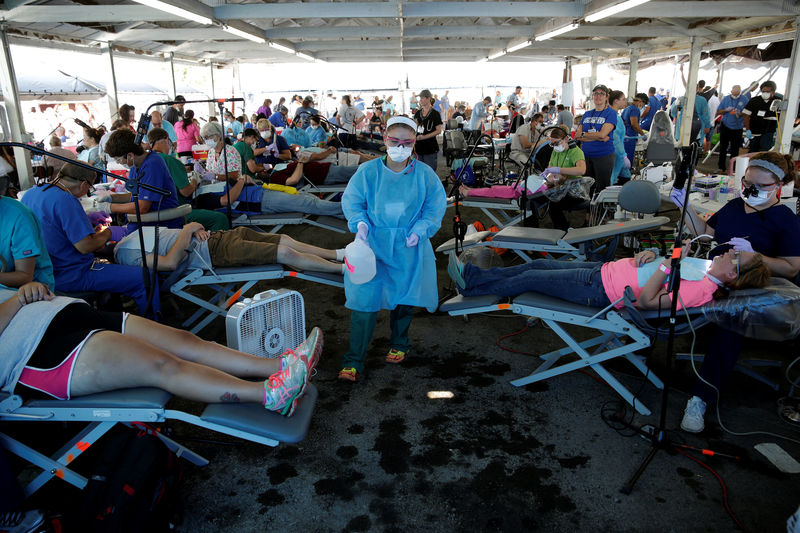By Amanda Becker
WASHINGTON (Reuters) - Republican Senate leaders aim to hold a procedural vote as early as Tuesday to take up legislation to repeal or replace Obamacare, but it remained unclear which version of the bill senators would vote on.
President Donald Trump and congressional Republicans campaigned on a pledge to roll back former President Barack Obama's signature healthcare law, the 2010 Affordable Care Act, also known as Obamacare.
Senator John Thune, a member of the Republican leadership, told "Fox News Sunday" the initial vote was simply a way to open debate on the bill so that senators from both parties could offer amendments.
"The first vote, which will occur sometime this week, will be to proceed to the consideration of that legislation and to at least have a debate where we can have an open amendment process," Thune said.
The Republican-controlled House in May passed its version of a healthcare bill. Senate Republicans have considered two versions of related legislation but have been unable to reach consensus after estimates showed as many as 22 million fewer Americans would be insured if the proposals became law. A plan to repeal Obamacare without replacing it also ran aground.
Republicans control a narrow majority in the Senate, holding 52 of 100 seats. With the Democrats united in opposition to the Republican effort, Senator Majority Leader Mitch McConnell can only afford to lose the votes of two Republican senators.
The fate of any legislation to rewrite Obamacare is uncertain as many Republicans have not yet made clear their positions.
"It appears we'll have a vote on Tuesday but we don't know whether we'll be voting on the House bill, the first version of the Senate bill, the second version of the Senate bill," Republican Senator Susan Collins told CBS' "Face the Nation" on Sunday.
Collins is a moderate Republican who has objected to prior versions of the Senate bill and also to repealing Obamacare without replacing it.
Trump suggested last week that he was fine with letting Obamacare fail, but he then switched course and invited Republican senators to the White House to try to hash out a healthcare deal.

The Republican effort has also been complicated by the absence of Republican Senator John McCain, who has been diagnosed with brain cancer and has been in his home state of Arizona weighing treatment options.